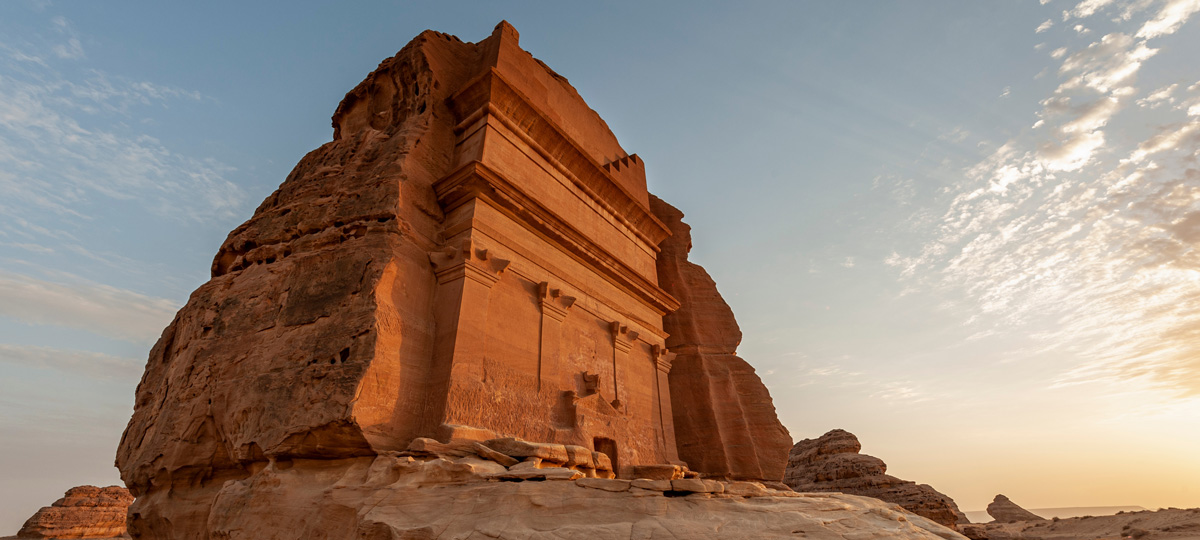Cookies on the Abercrombie & Kent website
We use cookies to help you get the most from our site. If you continue without changing your settings, we’ll assume that you’re happy to receive all cookies on our site. However, you can change your cookie settings at any time.

- Home
- /
- Saudi Arabia
- /
- News
Latest News from A&K Saudi Arabia

Ramadan In Saudi Arabia
Visiting Saudi Arabia during Ramadan can be an extraordinary experience for everyone as it offers the best period in which you can get to know the local culture, tradition, practices at its best. It is a period of great celebrations and the coming together of families and friends to honor their dedication to the ways set by the religion.
What is Ramadan?
Ramadan is a holy month when Muslims from all around the world celebrate the Prophet Muhammad receiving the Quran. Throughout this month, Muslims practice many of the five pillars of Islam, including Prayer, Zakat – (Giving money to charities), and fasting if they are physically able. Muslims are required to refrain from eating and drinking (including water) during daylight hours focusing instead on worship and charitable acts. But while it is an intense period of reflection, it is also one filled with joyous traditions that include food, family, and festivities. However, people who are not practicing Ramadan are free and able to eat and drink when they desire while respecting their surroundings.
Life in Ramadan
Ramadan daytime is relatively tranquil, whereas the nighttime is busy and lively; it is the time to visit the family, eat outside, and shop. People in Saudi tend to work six hours a day, rather than eight or nine hours to ease the day. Staying up till midnight is usual for most locals during Ramadan. Malls working hours change to open doors for all in two shifts, the first starting from 10:00 A.M. - 16:00, and the second begins after Al`Isha prayer 20:00 till 02:00 A.M. Restaurants, on the other hand, open the doors ahead Al-Maghrib prayer around 18:00 - 2:00 A.M.
How Is Ramadan Celebrated?
Muslims traditionally break their fasts just as the Prophet Muhammad did 1,400 years ago, with some dates and a sip of water at sunset. After sunset prayers, family and friends share a large feast known as iftar. In many families, iftar is both a social event and a gastronomical adventure. Some of the known foods during this month usually include sambosa’s - stuffed triangle-shaped dough, Oat soup, and also balls of fried dough covered in date syrup called logaimat.
Stores in Ramadan
If you are looking for a special Ramadan ambiance, visit the local markets, Old towns, and public realms after sunset. The city's citizens are used to spending more time with their families during the spiritual nights of Ramadan by walking and shopping while wearing traditional clothes, Thob for men, and Jalabiya for women.
Restaurants in Ramadan
Most restaurants start serving food after sunset which is around 18:00. Additionally, hotels participate in making these kinds of buffets amidst spiritual Ramadan ambiances including traditional Saudi dishes such as samosa, lokma, Vimto juice, and dates with Arabic coffee.
Life in Ramadan for people who are not Fasting:
Although many restaurants are not open during the daytime, hotels are an exception to that. Hotels continue to serve food in normal hours. Additionally, grocery stores and bakeries are also open for a limited time during the day to allow those who are not fasting to be able to eat. People who are not participating in the act of fasting are free and able to eat and drink at any time while still respecting the surrounding community.
- Follow us on
- Share us on
- © Abercrombie & Kent Ltd. All rights reserved
- About
- Privacy Notice
- Cookie Policy
- Terms of Use
- Data Processing Agreement


